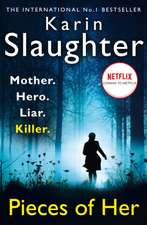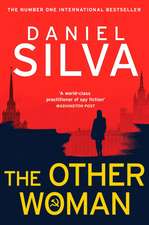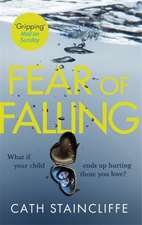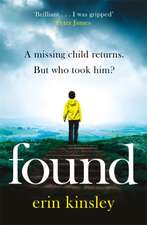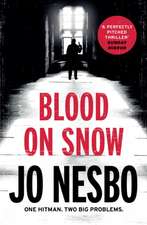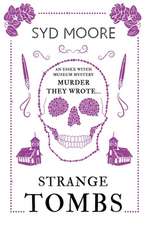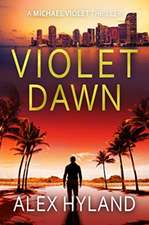The Bat: Harry Hole
Autor Jo Nesbo Traducere de Don Bartletten Limba Engleză Paperback – 18 iul 2013
| Toate formatele și edițiile | Preț | Express |
|---|---|---|
| Paperback (3) | 51.87 lei 22-36 zile | +11.15 lei 6-12 zile |
| Random House – 28 mar 2013 | 51.87 lei 22-36 zile | +11.15 lei 6-12 zile |
| Vintage Publishing – 18 iul 2013 | 55.07 lei 25-31 zile | +22.33 lei 6-12 zile |
| Vintage Crime/Black Lizard – iul 2013 | 97.74 lei 22-36 zile |
Din seria Harry Hole
- 18%
 Preț: 54.88 lei
Preț: 54.88 lei -
 Preț: 52.66 lei
Preț: 52.66 lei - 21%
 Preț: 51.86 lei
Preț: 51.86 lei -
 Preț: 53.27 lei
Preț: 53.27 lei - 14%
 Preț: 55.47 lei
Preț: 55.47 lei - 13%
 Preț: 57.62 lei
Preț: 57.62 lei -
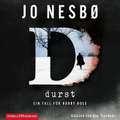 Preț: 90.63 lei
Preț: 90.63 lei -
 Preț: 77.72 lei
Preț: 77.72 lei -
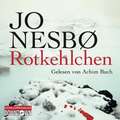 Preț: 85.98 lei
Preț: 85.98 lei -
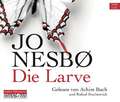 Preț: 85.92 lei
Preț: 85.92 lei -
 Preț: 72.68 lei
Preț: 72.68 lei -
 Preț: 115.44 lei
Preț: 115.44 lei -
 Preț: 74.63 lei
Preț: 74.63 lei -
 Preț: 75.87 lei
Preț: 75.87 lei -
 Preț: 86.12 lei
Preț: 86.12 lei -
 Preț: 86.34 lei
Preț: 86.34 lei -
 Preț: 86.81 lei
Preț: 86.81 lei -
 Preț: 50.89 lei
Preț: 50.89 lei
Preț: 55.07 lei
Preț vechi: 64.54 lei
-15% Nou
Puncte Express: 83
Preț estimativ în valută:
10.54€ • 11.03$ • 8.77£
10.54€ • 11.03$ • 8.77£
Carte disponibilă
Livrare economică 13-19 martie
Livrare express 22-28 februarie pentru 32.32 lei
Preluare comenzi: 021 569.72.76
Specificații
ISBN-13: 9780099520320
ISBN-10: 009952032X
Pagini: 432
Dimensiuni: 128 x 198 x 30 mm
Greutate: 0.31 kg
Editura: Vintage Publishing
Seria Harry Hole
ISBN-10: 009952032X
Pagini: 432
Dimensiuni: 128 x 198 x 30 mm
Greutate: 0.31 kg
Editura: Vintage Publishing
Seria Harry Hole
Recenzii
NATIONAL BESTSELLER
A USA Today Critic’s Pick
“This is an absolute must for devotees of the riveting train wreck that is Harry Hole. . . . While the chronological confusion is disconcerting, it adds a layer of dramatic irony to the tale and enhances its tension and power.”
—Booklist (starred review)
“Harry is already every bit as volcanic as in his later cases. The big difference is Australia, which Nesbø, seeing it through the eyes of both a tourist and a cultural pathologist, makes you wonder how much different it is from Norway after all.”
—Kirkus Reviews
"This debut effort shows Nesbø as an already confident genre craftsman, striking sparks from the familiar genre material of Harry’s fish-out-of-water experience in a foreign land and odd-couple pairing with a mismatched partner."
--Publishers Weekly
Advance praise from the U.K.
“Even with this first book Nesbø’s command of the idiom is completely in place—there is absolutely no sense that the writer was finding his feet and aficionados will be very pleased to slide this on to their bookshelves alongside the other Harry Hole novels.”
--The Daily Express
“It is fantastic to see a younger Harry, a more loquacious Harry. . . . [Nesbø is] a terrific writer who knows how to build a story, taking you slowly to the top of a rollercoaster before sending you hurtling towards a solution that you never see coming.”
--Scottish Express
“Nesbø is already taking on the clichés, ruthlessly tearing them apart and coming up with new riffs. . . . Most satisfyingly, we can now see the organic shape that Nesbø always intended his work to take.”
--The Independent (London)
A USA Today Critic’s Pick
“This is an absolute must for devotees of the riveting train wreck that is Harry Hole. . . . While the chronological confusion is disconcerting, it adds a layer of dramatic irony to the tale and enhances its tension and power.”
—Booklist (starred review)
“Harry is already every bit as volcanic as in his later cases. The big difference is Australia, which Nesbø, seeing it through the eyes of both a tourist and a cultural pathologist, makes you wonder how much different it is from Norway after all.”
—Kirkus Reviews
"This debut effort shows Nesbø as an already confident genre craftsman, striking sparks from the familiar genre material of Harry’s fish-out-of-water experience in a foreign land and odd-couple pairing with a mismatched partner."
--Publishers Weekly
Advance praise from the U.K.
“Even with this first book Nesbø’s command of the idiom is completely in place—there is absolutely no sense that the writer was finding his feet and aficionados will be very pleased to slide this on to their bookshelves alongside the other Harry Hole novels.”
--The Daily Express
“It is fantastic to see a younger Harry, a more loquacious Harry. . . . [Nesbø is] a terrific writer who knows how to build a story, taking you slowly to the top of a rollercoaster before sending you hurtling towards a solution that you never see coming.”
--Scottish Express
“Nesbø is already taking on the clichés, ruthlessly tearing them apart and coming up with new riffs. . . . Most satisfyingly, we can now see the organic shape that Nesbø always intended his work to take.”
--The Independent (London)
Notă biografică
Jo Nesbø’s books have sold more than eighteen million copies worldwide, and have been translated into forty-seven languages. His Harry Hole novels include The Redbreast, Nemesis, The Devil’s Star, The Snowman, The Leopard, Phantom and The Redeemer, and he is the author of Headhunters and several children’s books. He has received the Glass Key Award for best Nordic crime novel. He is also a musician, songwriter, and economist and lives in Oslo.
Extras
Excerpted from Chapter 1
Sydney
Something was wrong.
At first the female passport official had beamed: “How are ya, mate?”
“I’m fine,” Harry Hole had lied. It was more than thirty hours since he had taken off from Oslo via London, and after the change of planes in Bahrain he had sat in the same bloody seat by the emergency exit. For security reasons it could only be tipped back a little, and his lumbar region had almost crumbled by the time they reached Singapore.
And now the woman behind the counter was no longer smiling.
She had scrutinized his passport with conspicuous interest. Whether it was the photograph or his name that had initially put her in such a cheery mood was hard to say.
“Business?”
Harry Hole had a suspicion that passport officials in most places in the world would have added a “sir,” but he had read that this type of formal pleasantry wasn’t especially widespread in Australia. It didn’t really matter; Harry wasn’t particularly accustomed to foreign travel or snobbish—all he wanted was a hotel room and a bed as quickly as possible.
“Yes,” he had replied, drumming his fingers on the counter.
And that was when her lips had pursed, turned ugly and articulated, with a pointed tone: “Why isn’t there a visa in your passport, sir?”
His heart sank, as it invariably did when there was a hint of a catastrophe in the offing. Perhaps “sir” was used only when situations became critical?
“Sorry, I forgot,” Harry mumbled, searching feverishly through his inside pockets. Why had they not been able to pin a special visa in his passport as they do with standard visas? Behind him in the queue he heard the faint drone of a Walkman and realized it was his traveling companion from the plane. He had been playing the same cassette the whole flight. Why the hell could he never remember which pocket he put things in? It was hot as well, even though it was getting on for ten o’clock at night. Harry could feel his scalp beginning to itch.
At last he found the document and placed it on the counter, to his great relief.
“Police officer, are you?”
The passport official looked up from the special visa and studied him, but the pursed mouth was gone.
“I hope no Norwegian blondes have been murdered?”
She chuckled and smacked the stamp down hard on the special visa.
“Well, just the one,” Harry Hole answered.
The arrivals hall was crowded with travel reps and limousine drivers, holding up signs with names on, but not a Hole in sight. He was on the point of grabbing a taxi when a black man wearing light blue jeans and a Hawaiian shirt, and with an unusually broad nose and dark, curly hair plowed a furrow between the signs and came striding toward him.
“Mr. Holy, I presume!” he declared triumphantly.
Harry Hole considered his options. He had decided to spend the first days in Australia correcting the pronunciation of his surname so that he wouldn’t be confused with apertures or orifices. Mr. Holy however, was infinitely preferable.
“Andrew Kensington. How are ya?” the man grinned and stuck out an enormous fist.
It was nothing less than a juice extractor.
“Welcome to Sydney. Hope you enjoyed the flight,” the stranger said with evident sincerity, like an echo of the air hostess’s announcement twenty minutes earlier. He took Harry’s battered suitcase and began to walk toward the exit without a backward glance. Harry kept close to him.
“Do you work for Sydney police?” he initiated.
“Sure do, mate. Watch out!”
The swing door hit Harry in the face, right on the hooter, and made his eyes water. A bad slapstick sketch could not have started worse. He rubbed his nose and swore in Norwegian. Kensington sent him a sympathetic look.
“Bloody doors, eh?” he said.
Harry didn’t answer. He didn’t know how to answer that sort of comment down under.
In the car park Kensington unlocked the boot of a small, well-used Toyota and shoved in the suitcase. “Do you wanna drive, mate?” he asked in surprise.
Harry realized he was sitting in the driver’s seat. Of course, they drove on the bloody left in Australia. However, the passenger seat was so full of papers, cassettes and general rubbish that Harry squeezed into the back.
“You must be an Aboriginal,” he said as they turned onto the motorway.
“Guess there’s no fooling you, Officer,” Kensington answered, glancing in the mirror.
“In Norway we call you Australian Negroes.”
Kensington kept his eyes trained on the mirror. “Really?”
Harry began to feel ill at ease. “Er, by that I just mean that your forefathers obviously didn’t belong to the convicts sent here from England two hundred years ago.” He wanted to show he had at least a modicum of knowledge about the country’s history.
“That’s right, Holy. My forefathers were here a bit before them. Forty thousand years, to be precise.”
Kensington grinned into the mirror. Harry vowed to keep his mouth shut for a while.
“I see. Call me Harry.”
“OK, Harry. I’m Andrew.”
Andrew ran the conversation for the rest of the ride. He drove Harry to King’s Cross, holding forth the whole way: this area was Sydney’s red-light district and the center for the drugs trade and to a large extent all the other shady dealings in town. Every second scandal seemed to have a connection with some hotel or strip joint inside this square kilometer.
“Here we are,” Andrew said suddenly. He pulled in to the curb, jumped out and took Harry’s suitcase from the boot.
“See you tomorrow,” Andrew said, and with that he and the car were gone. With a stiff back and jet lag beginning to announce its presence, Harry and his suitcase were now alone on a pavement in a town boasting a population roughly equivalent to the whole of Norway, outside the splendid Crescent Hotel. The name was printed on the door next to three stars. Oslo’s Chief Constable was not known for largesse with regards to accommodation for her employees. But perhaps this one was not going to be too bad after all. There must have been a civil service discount and it was probably the hotel’s smallest room, Harry reflected.
And it was.
2
Gap Park
Harry knocked warily on the door of the Head of Crime Squad for Surry Hills.
“Come in,” boomed a voice from inside.
A tall, broad man with a stomach designed to impress was standing by the window, behind an oak desk. Beneath a thinning mane protruded gray bushy eyebrows, but the wrinkles around his eyes smiled.
“Harry Holy from Oslo, Norway, sir.”
“Take a pew, Holy. You look bloody fit for this time of the morning. I hope you haven’t been to see any of the boys in Narc, have you?” Neil McCormack let out a huge laugh.
“Jet lag. I’ve been awake since four this morning, sir,” Harry explained.
“Of course. Just an in-joke. We had a pretty high-profile corruption case here a couple of years back, you see. Ten officers were convicted, among other things for selling drugs—to one another. Suspicion was raised because a couple of them were so alert—round the clock. No joke really.” He chuckled contentedly, put on his glasses and flicked through the papers in front of him.
“So you’ve been sent here to assist us with our investigation into the murder of Inger Holter, a Norwegian citizen with a permit to work in Australia. Blonde, good-looking girl, according to the photos. Twenty-three years old, wasn’t she?”
Harry nodded. McCormack was serious now.
“Found by fishermen on the ocean side of Watson’s Bay—to be more precise, Gap Park. Semi-naked. Bruising suggested she had been raped first and then strangled, but no semen was found. Later transported at the dead of night to the park where the body was dumped off the cliff.”
He pulled a face.
“Had the weather been a little worse the waves would definitely have carried her out, but instead she lay among the rocks until she was found. As I said, there was no semen present, and the reason for that is that the vagina was sliced up like a filleted fish and the seawater did a thorough job of washing this girl clean. Therefore we have no fingerprints either, though we do have a rough estimate of time of death . . .” McCormack removed his glasses and rubbed his face. “But we don’t have a murderer. And what the hell are you gonna do about that, Mr. Holy?”
Harry was about to answer but was interrupted.
“What you’re gonna do is watch carefully while we haul the bastard in, tell the Norwegian press along the way what a wonderful job we’re doing together—making sure we don’t offend anyone at the Norwegian Embassy, or relatives—and otherwise enjoy a break and send a card or two to your dear Chief Constable. How is she by the way?”
“Fine, as far as I know.”
“Great woman, she is. I s’pose she explained to you what’s expected of you?”
“To some extent. I’m taking part in an invest—”
“Great. Forget all that. Here are the new rules. Number one: from now on you listen to me, me and me alone. Number two: you don’t take part in anything you haven’t been instructed to do by me. And number three: one toe out of line and you’ll be on the first plane home.”
This was delivered with a smile, but the message was clear: paws off, he was here as an observer. He might just as well have brought his swimming things and a camera along.
“I gather that Inger Holter was some kind of TV celeb in Norway?”
“A minor celeb, sir. She hosted a children’s program broadcast a couple of years ago. I suppose before this happened she was on her way into oblivion.”
“Yeah, I’ve been told that your papers are making a big thing of this murder. Couple of them have sent people here already. We’ve given ’em what we’ve got, and that’s not a great deal, so they’ll soon be bored and bugger off home. They don’t know you’re here. We’ve got our own nannies, so you won’t have to take care of them.”
“Thank you for that, sir,” Harry said, and he meant it. The thought of panting Norwegian journalists looking over his shoulder was not a welcome one.
“OK, Holy, I’ll be honest with you and tell you how the land lies. I’ve been told in no uncertain terms by my governor that councillors in Sydney would like to see this case cleared up as soon as possible. As usual, it’s all about politics and dosh.”
“Dosh?”
“Well, we reckon unemployment in Sydney will rise to over ten percent this year, and the town needs every cent we can get from the tourists. We’ve got the Olympic Games just round the corner, in 2000, and tourism from Scandinavia’s on the up. Murder, especially one which hasn’t been cleared up, isn’t a good advert for the town, so we’re doing what we can. We have a team of four detectives on the case plus high-priority access to the force’s resources—all the computers, forensic staff, lab people. And so on.”
McCormack pulled out a sheet of paper which he studied with a frown.
“In fact, you should be working with Watkins, but since you specifically asked for Kensington, I see no reason to refuse your request.”
“Sir, to my knowledge I haven’t—”
“Kensington’s a good man. There are not many Indigenous officers who have come up through the ranks like him.”
“No?”
McCormack shrugged. “That’s just the way it is. Well, Holy, if there’s anything else, you know where I hang out. Any questions?”
“Er, just a formality, sir. I was wondering whether sir was the right mode of address to a superior officer in this country, or whether it was a little too . . .”
“Formal? Stiff? Yes, I guess it probably is. But I like it. It reminds me that I am in fact the boss of this outfit.” McCormack burst out laughing and concluded the meeting with a bone-crunching handshake.
“January’s the tourist season in Australia,” Andrew explained as they lurched forward in the traffic around Circular Quay.
“Everyone comes to see the Sydney Opera House and go on boat trips round the harbor and admire the women on Bondi Beach. Shame you’ve got to work.”
Harry shook his head. “Doesn’t matter. I break out in a cold sweat around tourist traps.”
They emerged onto New South Head Road, where the Toyota sped eastward to Watson’s Bay.
“The East Side of Sydney’s not exactly like the East End of London,” Andrew explained as they passed one fashionable house after another. “This district’s called Double Bay. We call it Double Pay.”
“Where did Inger Holter live?”
“She lived with her boyfriend in Newtown for a while before they split up and she moved to a little one-room flat in Glebe.”
“Boyfriend?”
Andrew shrugged. “He’s Australian, a computer engineer and met her when she came here on holiday two years ago. He’s got an alibi for the night of the murder and is not exactly the prototype of a murderer. But you never know, do you?”
They parked below Gap Park, one of Sydney’s many green lungs. Steep stone steps led up to the windblown park that lay high above Watson’s Bay to the north and the Pacific Ocean to the east. The heat hit them when they opened the car doors. Andrew put on a big pair of shades, which made Harry think of a laid-back porn king. For some reason his Australian colleague was wearing a tight suit today, and Harry thought the broad-shouldered black man looked a bit comical as he rolled and pitched up the path in front of him to the viewpoint.
Harry looked around. To the west he saw the city center with the Harbor Bridge, to the north the beach and yachts in Watson’s Bay and, further in the distance, verdant Manly, the suburb on the northern side of the bay. To the east the horizon curved in a spectrum of various shades of blue. The cliffs plunged down in front of them, and way below the ocean breakers ended their long voyage in a thunderous crescendo among the rocks.
Harry felt a bead of sweat running down between his shoulder blades. This heat was giving him goose pimples.
“You can see the Pacific Ocean from here, Harry. Next stop New Zealand, after about twelve hundred wet miles,” Andrew said, spitting a thick gobbet off the edge of the cliff. They followed it down for a while until the wind dispersed it.
“Good job she wasn’t alive when she fell,” he said. “She must have hit the cliffs on the way down; there were large chunks of flesh torn from her body when they found her.”
Sydney
Something was wrong.
At first the female passport official had beamed: “How are ya, mate?”
“I’m fine,” Harry Hole had lied. It was more than thirty hours since he had taken off from Oslo via London, and after the change of planes in Bahrain he had sat in the same bloody seat by the emergency exit. For security reasons it could only be tipped back a little, and his lumbar region had almost crumbled by the time they reached Singapore.
And now the woman behind the counter was no longer smiling.
She had scrutinized his passport with conspicuous interest. Whether it was the photograph or his name that had initially put her in such a cheery mood was hard to say.
“Business?”
Harry Hole had a suspicion that passport officials in most places in the world would have added a “sir,” but he had read that this type of formal pleasantry wasn’t especially widespread in Australia. It didn’t really matter; Harry wasn’t particularly accustomed to foreign travel or snobbish—all he wanted was a hotel room and a bed as quickly as possible.
“Yes,” he had replied, drumming his fingers on the counter.
And that was when her lips had pursed, turned ugly and articulated, with a pointed tone: “Why isn’t there a visa in your passport, sir?”
His heart sank, as it invariably did when there was a hint of a catastrophe in the offing. Perhaps “sir” was used only when situations became critical?
“Sorry, I forgot,” Harry mumbled, searching feverishly through his inside pockets. Why had they not been able to pin a special visa in his passport as they do with standard visas? Behind him in the queue he heard the faint drone of a Walkman and realized it was his traveling companion from the plane. He had been playing the same cassette the whole flight. Why the hell could he never remember which pocket he put things in? It was hot as well, even though it was getting on for ten o’clock at night. Harry could feel his scalp beginning to itch.
At last he found the document and placed it on the counter, to his great relief.
“Police officer, are you?”
The passport official looked up from the special visa and studied him, but the pursed mouth was gone.
“I hope no Norwegian blondes have been murdered?”
She chuckled and smacked the stamp down hard on the special visa.
“Well, just the one,” Harry Hole answered.
The arrivals hall was crowded with travel reps and limousine drivers, holding up signs with names on, but not a Hole in sight. He was on the point of grabbing a taxi when a black man wearing light blue jeans and a Hawaiian shirt, and with an unusually broad nose and dark, curly hair plowed a furrow between the signs and came striding toward him.
“Mr. Holy, I presume!” he declared triumphantly.
Harry Hole considered his options. He had decided to spend the first days in Australia correcting the pronunciation of his surname so that he wouldn’t be confused with apertures or orifices. Mr. Holy however, was infinitely preferable.
“Andrew Kensington. How are ya?” the man grinned and stuck out an enormous fist.
It was nothing less than a juice extractor.
“Welcome to Sydney. Hope you enjoyed the flight,” the stranger said with evident sincerity, like an echo of the air hostess’s announcement twenty minutes earlier. He took Harry’s battered suitcase and began to walk toward the exit without a backward glance. Harry kept close to him.
“Do you work for Sydney police?” he initiated.
“Sure do, mate. Watch out!”
The swing door hit Harry in the face, right on the hooter, and made his eyes water. A bad slapstick sketch could not have started worse. He rubbed his nose and swore in Norwegian. Kensington sent him a sympathetic look.
“Bloody doors, eh?” he said.
Harry didn’t answer. He didn’t know how to answer that sort of comment down under.
In the car park Kensington unlocked the boot of a small, well-used Toyota and shoved in the suitcase. “Do you wanna drive, mate?” he asked in surprise.
Harry realized he was sitting in the driver’s seat. Of course, they drove on the bloody left in Australia. However, the passenger seat was so full of papers, cassettes and general rubbish that Harry squeezed into the back.
“You must be an Aboriginal,” he said as they turned onto the motorway.
“Guess there’s no fooling you, Officer,” Kensington answered, glancing in the mirror.
“In Norway we call you Australian Negroes.”
Kensington kept his eyes trained on the mirror. “Really?”
Harry began to feel ill at ease. “Er, by that I just mean that your forefathers obviously didn’t belong to the convicts sent here from England two hundred years ago.” He wanted to show he had at least a modicum of knowledge about the country’s history.
“That’s right, Holy. My forefathers were here a bit before them. Forty thousand years, to be precise.”
Kensington grinned into the mirror. Harry vowed to keep his mouth shut for a while.
“I see. Call me Harry.”
“OK, Harry. I’m Andrew.”
Andrew ran the conversation for the rest of the ride. He drove Harry to King’s Cross, holding forth the whole way: this area was Sydney’s red-light district and the center for the drugs trade and to a large extent all the other shady dealings in town. Every second scandal seemed to have a connection with some hotel or strip joint inside this square kilometer.
“Here we are,” Andrew said suddenly. He pulled in to the curb, jumped out and took Harry’s suitcase from the boot.
“See you tomorrow,” Andrew said, and with that he and the car were gone. With a stiff back and jet lag beginning to announce its presence, Harry and his suitcase were now alone on a pavement in a town boasting a population roughly equivalent to the whole of Norway, outside the splendid Crescent Hotel. The name was printed on the door next to three stars. Oslo’s Chief Constable was not known for largesse with regards to accommodation for her employees. But perhaps this one was not going to be too bad after all. There must have been a civil service discount and it was probably the hotel’s smallest room, Harry reflected.
And it was.
2
Gap Park
Harry knocked warily on the door of the Head of Crime Squad for Surry Hills.
“Come in,” boomed a voice from inside.
A tall, broad man with a stomach designed to impress was standing by the window, behind an oak desk. Beneath a thinning mane protruded gray bushy eyebrows, but the wrinkles around his eyes smiled.
“Harry Holy from Oslo, Norway, sir.”
“Take a pew, Holy. You look bloody fit for this time of the morning. I hope you haven’t been to see any of the boys in Narc, have you?” Neil McCormack let out a huge laugh.
“Jet lag. I’ve been awake since four this morning, sir,” Harry explained.
“Of course. Just an in-joke. We had a pretty high-profile corruption case here a couple of years back, you see. Ten officers were convicted, among other things for selling drugs—to one another. Suspicion was raised because a couple of them were so alert—round the clock. No joke really.” He chuckled contentedly, put on his glasses and flicked through the papers in front of him.
“So you’ve been sent here to assist us with our investigation into the murder of Inger Holter, a Norwegian citizen with a permit to work in Australia. Blonde, good-looking girl, according to the photos. Twenty-three years old, wasn’t she?”
Harry nodded. McCormack was serious now.
“Found by fishermen on the ocean side of Watson’s Bay—to be more precise, Gap Park. Semi-naked. Bruising suggested she had been raped first and then strangled, but no semen was found. Later transported at the dead of night to the park where the body was dumped off the cliff.”
He pulled a face.
“Had the weather been a little worse the waves would definitely have carried her out, but instead she lay among the rocks until she was found. As I said, there was no semen present, and the reason for that is that the vagina was sliced up like a filleted fish and the seawater did a thorough job of washing this girl clean. Therefore we have no fingerprints either, though we do have a rough estimate of time of death . . .” McCormack removed his glasses and rubbed his face. “But we don’t have a murderer. And what the hell are you gonna do about that, Mr. Holy?”
Harry was about to answer but was interrupted.
“What you’re gonna do is watch carefully while we haul the bastard in, tell the Norwegian press along the way what a wonderful job we’re doing together—making sure we don’t offend anyone at the Norwegian Embassy, or relatives—and otherwise enjoy a break and send a card or two to your dear Chief Constable. How is she by the way?”
“Fine, as far as I know.”
“Great woman, she is. I s’pose she explained to you what’s expected of you?”
“To some extent. I’m taking part in an invest—”
“Great. Forget all that. Here are the new rules. Number one: from now on you listen to me, me and me alone. Number two: you don’t take part in anything you haven’t been instructed to do by me. And number three: one toe out of line and you’ll be on the first plane home.”
This was delivered with a smile, but the message was clear: paws off, he was here as an observer. He might just as well have brought his swimming things and a camera along.
“I gather that Inger Holter was some kind of TV celeb in Norway?”
“A minor celeb, sir. She hosted a children’s program broadcast a couple of years ago. I suppose before this happened she was on her way into oblivion.”
“Yeah, I’ve been told that your papers are making a big thing of this murder. Couple of them have sent people here already. We’ve given ’em what we’ve got, and that’s not a great deal, so they’ll soon be bored and bugger off home. They don’t know you’re here. We’ve got our own nannies, so you won’t have to take care of them.”
“Thank you for that, sir,” Harry said, and he meant it. The thought of panting Norwegian journalists looking over his shoulder was not a welcome one.
“OK, Holy, I’ll be honest with you and tell you how the land lies. I’ve been told in no uncertain terms by my governor that councillors in Sydney would like to see this case cleared up as soon as possible. As usual, it’s all about politics and dosh.”
“Dosh?”
“Well, we reckon unemployment in Sydney will rise to over ten percent this year, and the town needs every cent we can get from the tourists. We’ve got the Olympic Games just round the corner, in 2000, and tourism from Scandinavia’s on the up. Murder, especially one which hasn’t been cleared up, isn’t a good advert for the town, so we’re doing what we can. We have a team of four detectives on the case plus high-priority access to the force’s resources—all the computers, forensic staff, lab people. And so on.”
McCormack pulled out a sheet of paper which he studied with a frown.
“In fact, you should be working with Watkins, but since you specifically asked for Kensington, I see no reason to refuse your request.”
“Sir, to my knowledge I haven’t—”
“Kensington’s a good man. There are not many Indigenous officers who have come up through the ranks like him.”
“No?”
McCormack shrugged. “That’s just the way it is. Well, Holy, if there’s anything else, you know where I hang out. Any questions?”
“Er, just a formality, sir. I was wondering whether sir was the right mode of address to a superior officer in this country, or whether it was a little too . . .”
“Formal? Stiff? Yes, I guess it probably is. But I like it. It reminds me that I am in fact the boss of this outfit.” McCormack burst out laughing and concluded the meeting with a bone-crunching handshake.
“January’s the tourist season in Australia,” Andrew explained as they lurched forward in the traffic around Circular Quay.
“Everyone comes to see the Sydney Opera House and go on boat trips round the harbor and admire the women on Bondi Beach. Shame you’ve got to work.”
Harry shook his head. “Doesn’t matter. I break out in a cold sweat around tourist traps.”
They emerged onto New South Head Road, where the Toyota sped eastward to Watson’s Bay.
“The East Side of Sydney’s not exactly like the East End of London,” Andrew explained as they passed one fashionable house after another. “This district’s called Double Bay. We call it Double Pay.”
“Where did Inger Holter live?”
“She lived with her boyfriend in Newtown for a while before they split up and she moved to a little one-room flat in Glebe.”
“Boyfriend?”
Andrew shrugged. “He’s Australian, a computer engineer and met her when she came here on holiday two years ago. He’s got an alibi for the night of the murder and is not exactly the prototype of a murderer. But you never know, do you?”
They parked below Gap Park, one of Sydney’s many green lungs. Steep stone steps led up to the windblown park that lay high above Watson’s Bay to the north and the Pacific Ocean to the east. The heat hit them when they opened the car doors. Andrew put on a big pair of shades, which made Harry think of a laid-back porn king. For some reason his Australian colleague was wearing a tight suit today, and Harry thought the broad-shouldered black man looked a bit comical as he rolled and pitched up the path in front of him to the viewpoint.
Harry looked around. To the west he saw the city center with the Harbor Bridge, to the north the beach and yachts in Watson’s Bay and, further in the distance, verdant Manly, the suburb on the northern side of the bay. To the east the horizon curved in a spectrum of various shades of blue. The cliffs plunged down in front of them, and way below the ocean breakers ended their long voyage in a thunderous crescendo among the rocks.
Harry felt a bead of sweat running down between his shoulder blades. This heat was giving him goose pimples.
“You can see the Pacific Ocean from here, Harry. Next stop New Zealand, after about twelve hundred wet miles,” Andrew said, spitting a thick gobbet off the edge of the cliff. They followed it down for a while until the wind dispersed it.
“Good job she wasn’t alive when she fell,” he said. “She must have hit the cliffs on the way down; there were large chunks of flesh torn from her body when they found her.”

